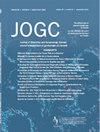Recognizing Endometrial Cancer Risks in Perimenopausal and Postmenopausal Experiences: Insights From Community Qualitative Interviews and Workshop
IF 2
Q2 OBSTETRICS & GYNECOLOGY
引用次数: 0
Abstract
Objectives
To evaluate the experiences of perimenopausal and postmenopausal women in British Columbia, their perceptions of expected reproductive aging, and potential concerns about endometrial cancer (EC).
Methods
We interviewed 31 midlife community women of diverse backgrounds and hosted a workshop for more in-depth discussion. We summarized relayed experiences and beliefs through a thematic and descriptive analysis of participant stories and workshop feedback.
Results
Participants demonstrated a somewhat simplistic understanding of midlife changes, facing this phase of life with a “tough-it-out” attitude rather than seeking medical help for arising symptoms. Awareness of EC and EC-specific risk factors, such as obesity, was low. Confusion between cervical and EC was common. Although abnormal bleeding was seen as potentially of concern, many opted to wait before seeking medical help. Workshop participants stressed the need to include awareness about EC in a broader conversation about perimenopause and menopause and suggested strategies for disseminating EC awareness.
Conclusions
Community women in British Columbia demonstrated low awareness of EC-associated symptoms and risk factors. There is little information to help distinguish when perimenopausal abnormal uterine bleeding is of concern and when to seek help. This highlights the need to enhance knowledge of EC and its risk factors in perimenopause among the public and among health care providers.
认识围绝经期和绝经后经历中的子宫内膜癌风险:社区定性访谈和研讨会的启示。
目的评估不列颠哥伦比亚省围绝经期和绝经后妇女的经历、她们对预期生殖衰老的看法以及对子宫内膜癌(EC)的潜在担忧:我们采访了 31 位不同背景的中年社区妇女,并举办了一次研讨会进行更深入的讨论。我们通过对参与者的故事和研讨会反馈进行主题分析和描述性分析,总结了她们的经验和信念:结果:参与者对中年变化的理解略显简单,他们以 "硬撑 "的态度面对人生的这一阶段,而不是为出现的症状寻求医疗帮助。对宫颈癌和宫颈癌特定风险因素(如肥胖)的认识不足。混淆宫颈癌和子宫内膜癌很常见。虽然异常出血可能会引起关注,但许多人选择等待,然后再寻求医疗帮助。研讨会与会者强调,有必要将对子宫内膜癌的认识纳入有关围绝经期和更年期的更广泛对话中,并提出了宣传子宫内膜癌认识的策略:不列颠哥伦比亚省的社区妇女对更年期相关症状和风险因素的认识不足。几乎没有信息可以帮助区分围绝经期异常子宫出血何时值得关注以及何时应该寻求帮助。这突出表明,有必要加强公众和医疗服务提供者对EC及其围绝经期风险因素的了解。
本文章由计算机程序翻译,如有差异,请以英文原文为准。
求助全文
约1分钟内获得全文
求助全文
来源期刊

Journal of obstetrics and gynaecology Canada
OBSTETRICS & GYNECOLOGY-
CiteScore
3.30
自引率
5.60%
发文量
302
审稿时长
32 days
期刊介绍:
Journal of Obstetrics and Gynaecology Canada (JOGC) is Canada"s peer-reviewed journal of obstetrics, gynaecology, and women"s health. Each monthly issue contains original research articles, reviews, case reports, commentaries, and editorials on all aspects of reproductive health. JOGC is the original publication source of evidence-based clinical guidelines, committee opinions, and policy statements that derive from standing or ad hoc committees of the Society of Obstetricians and Gynaecologists of Canada. JOGC is included in the National Library of Medicine"s MEDLINE database, and abstracts from JOGC are accessible on PubMed.
 求助内容:
求助内容: 应助结果提醒方式:
应助结果提醒方式:


